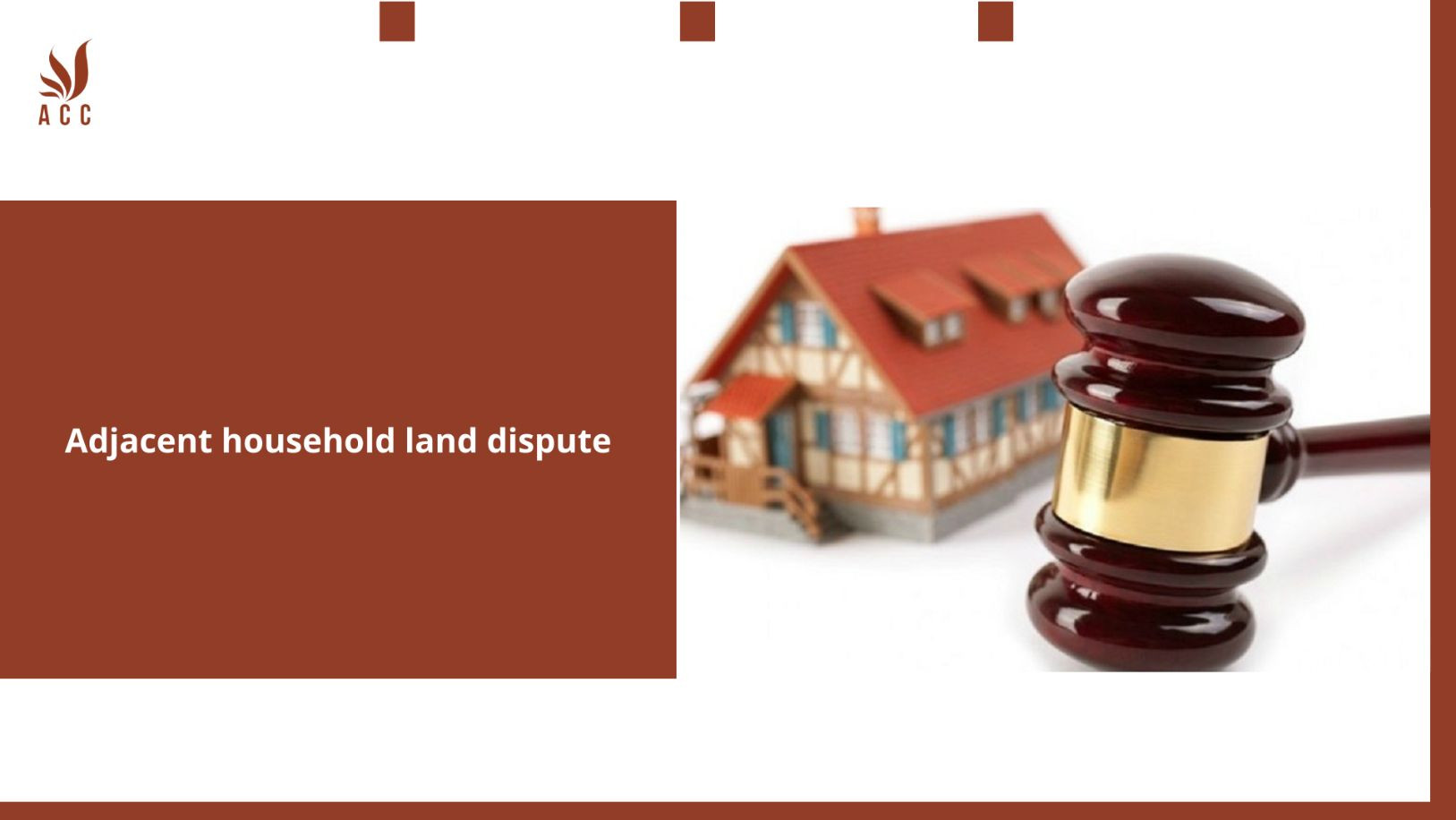An "adjacent household land dispute" refers to a conflict or disagreement between neighbors or nearby property owners regarding land-related issues. These disputes often revolve around property boundaries, land use, encroachments, and other matters that arise when the land of one household is adjacent to that of another.

I. Common causes of adjacent household land disputes may include:
-
Boundary Disputes: Conflicts over the exact location of property boundaries, which can arise due to unclear property descriptions, outdated surveys, or property encroachments.
-
Encroachments: When a structure, such as a fence, building, or landscaping, extends onto a neighboring property, disputes can occur due to the encroachment.
-
Easement Rights: Disagreements may arise over easement rights, which grant one property owner the legal right to use or access a portion of a neighboring property for a specific purpose, such as a shared driveway or utility access.
-
Land Use Conflicts: Conflicts over how the land is used can occur, particularly when one neighbor's activities (e.g., noise, odors, or business operations) negatively impact the other neighbor's property.
-
Environmental Concerns: Disputes may involve concerns related to environmental factors, such as drainage issues, soil erosion, or pollution that affects adjacent properties.
-
Construction Disputes: Conflicts can arise when one neighbor's construction or renovation work affects the other neighbor's property, such as through noise, disruption, or concerns about property damage.
II. Resolving adjacent household land disputes can be challenging, but there are various approaches to consider:
-
Direct Communication: Engage in open and respectful communication with your neighbor to discuss the issue and seek a mutually agreeable solution. Many disputes can be resolved through direct dialogue.
-
Boundary Surveys: Hire a professional land surveyor to accurately determine property boundaries and resolve disputes related to property lines.
-
Mediation: Consider using a professional mediator who can facilitate discussions and negotiations between the parties to reach a compromise.
-
Legal Action: If all else fails, legal action may be necessary, including filing a lawsuit to resolve the dispute. Legal remedies can vary based on the specific circumstances and applicable laws.
It's generally advisable to address adjacent household land disputes promptly and amicably to maintain neighborly relations and prevent conflicts from escalating. Seeking legal advice or consulting with a mediator can provide guidance on the most suitable approach for your specific dispute.
III. When using ACC Law Firm's land-related services, entrepreneurs will receive
When using ACC Law Firm's land-related services, entrepreneurs will receive expert advice and assistance in navigating various legal aspects of land ownership and transactions. This includes guidance in property acquisitions, leases, zoning regulations, land use planning, and any other land-related legal matters. ACC Law Firm's team of experienced attorneys will provide personalized support to entrepreneurs, ensuring compliance with applicable laws and regulations, protecting property rights, and optimizing the value of their land investments.
IV. Q&A
Q1: What is an adjacent household land dispute?
A1: An adjacent household land dispute is a conflict or disagreement between neighboring households or property owners over land boundaries, land use, property encroachments, or other issues related to the use and ownership of adjoining properties.
Q2: What are common reasons for adjacent household land disputes?
A2: Common reasons for adjacent household land disputes include boundary disagreements, encroachments onto a neighbor's land, disputes over shared resources (e.g., driveways or fences), land use conflicts (e.g., noise or zoning issues), and concerns about property maintenance and landscaping.
Q3: How can adjacent household land disputes be resolved?
A3: Adjacent household land disputes can be resolved through several methods, including negotiation and open communication between neighbors to reach a mutually acceptable solution. If negotiation fails, mediation, arbitration, or, in some cases, legal action may be necessary to address the dispute.
Q4: What steps should individuals take when involved in an adjacent household land dispute?
A4: When involved in an adjacent household land dispute, individuals should consider the following steps:
Engage in respectful and open communication with the neighbor to attempt an amicable resolution.
Document the dispute, including taking photographs, gathering property records, and keeping a record of all interactions.
If negotiation fails, seek mediation or arbitration as a means to resolve the dispute.
Consult with legal professionals to explore legal actions if necessary to protect property rights.
Nội dung bài viết:






Bình luận